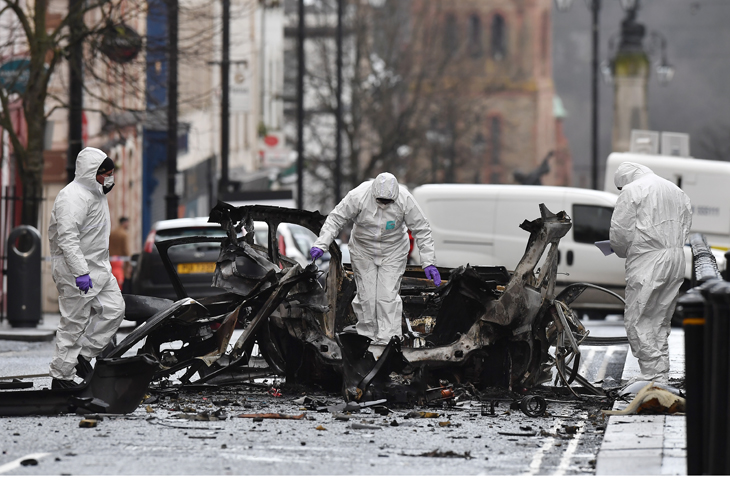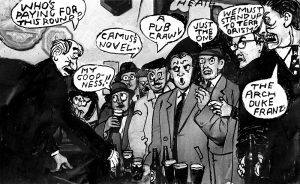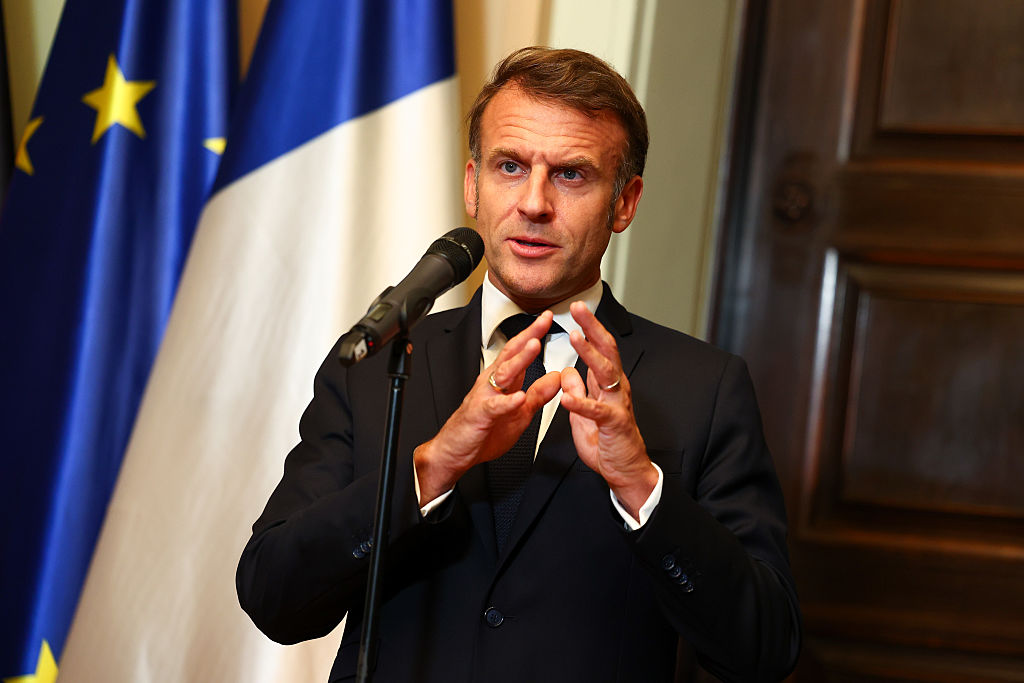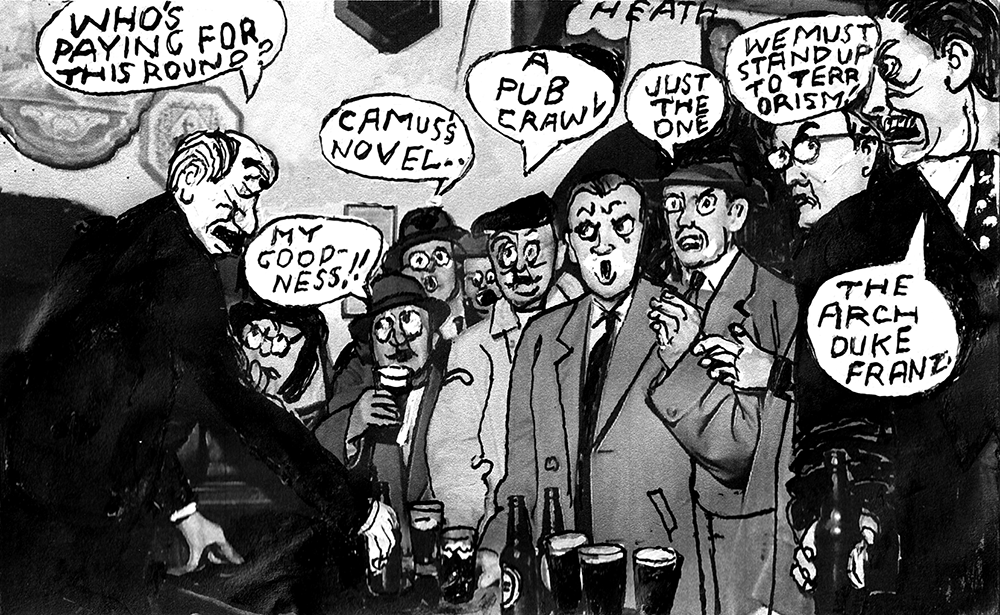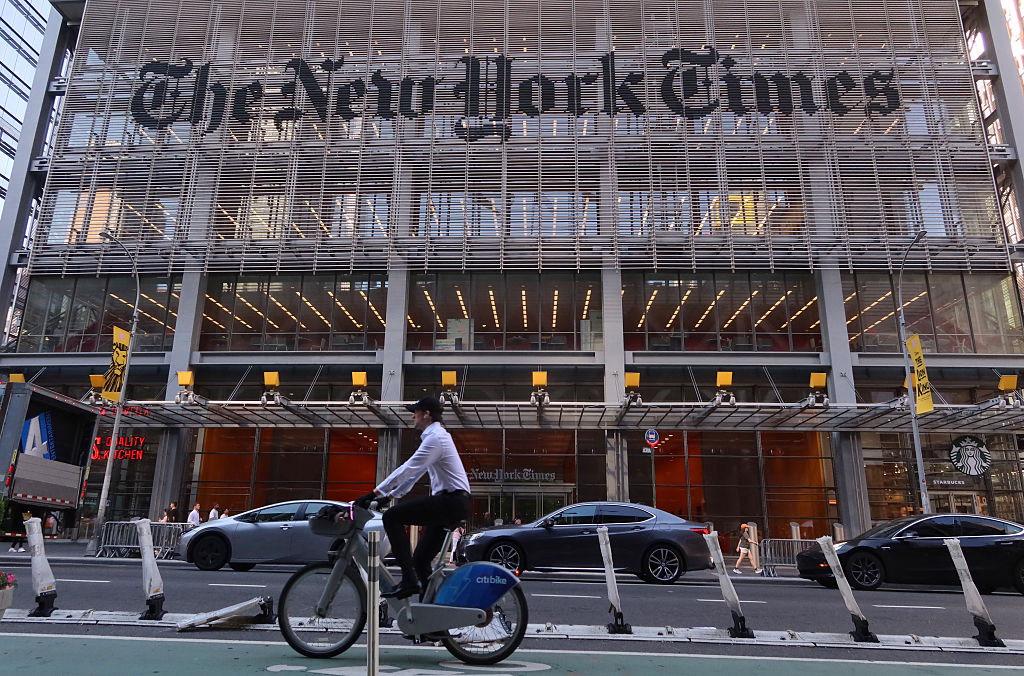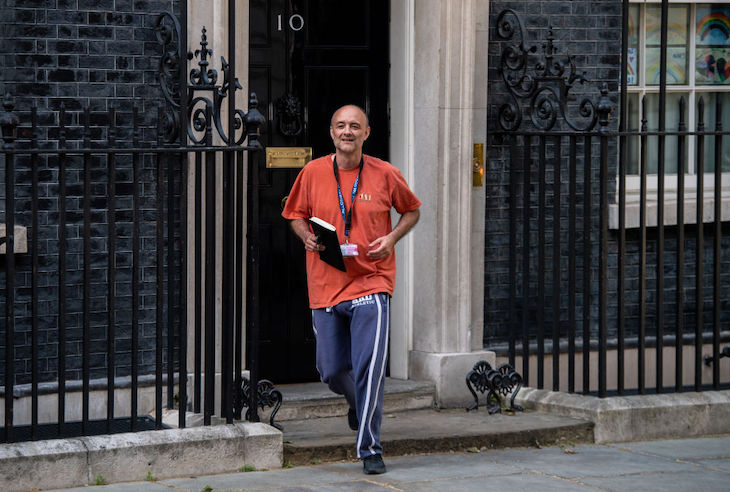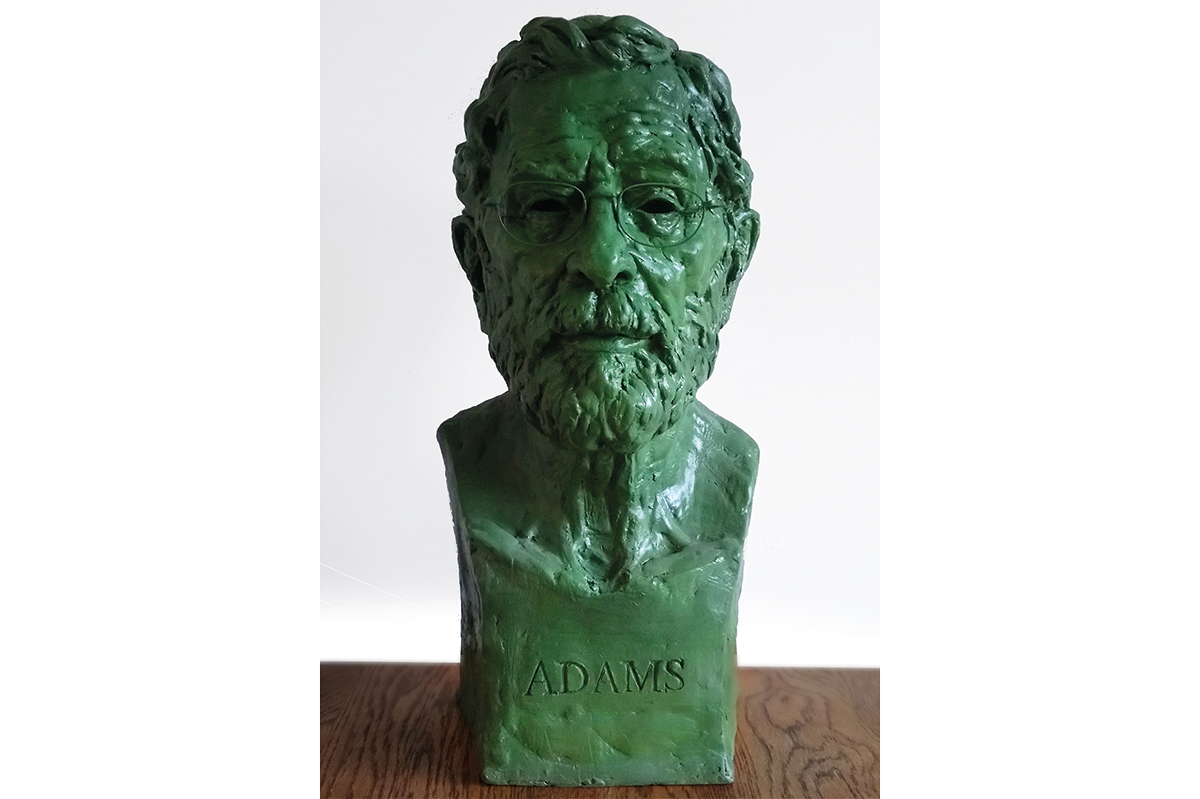When politics goes round in circles, the columnist inevitably revisits issues that would have been sorted if only everyone read The Spectator. So: back to the Irish border — a demarcation that takes up no geographical space, but has still mysteriously dominated a dozen years of my life. Oh, well. What’s one more afternoon, then?
Derry’s recent car bomb underscores a curious omission in all the Brexit argy-bargy about a ‘hard border’. Throughout, neither May, nor Barnier, nor even Varadkar ever utters the letters I, R and A. Yet the scummy residue of this vanquished potato blight lies at the heart of the hysteria about hypothetical border infrastructure that could present a ‘target’. Decorously, no one ever says target for whom.
Today’s vestigial Republican militants comprise drug dealers, petty criminals, Provisional lifers miffed that a career in terrorism doesn’t pay a pension, and wannabe hikikomori holed up in bedrooms over spittle-flecked computers. The folks for whom the jeer ‘Get a Life!’ might have been specifically coined, members of the New IRA — aka the Real IRA, the Not Those Guys, the Other Guys IRA or the Truly, No Foolin’, This Time We Mean It IRA — persist in sufficiently low numbers as to be downgraded to a mental health problem. The holdouts might best be exiled to some Butlins-style holiday camp on an island where long-lived Samurais are still fighting the second world war. For the fifth-largest economy in the world to design its whole trade policy around the appeasement of this delusional riffraff beggars belief.
Yet, executing a dizzying 180 meant to strike horror in the British heart, the chief spin doctor for Jean-Claude Juncker announced last week that, with no deal, the EU would indeed insist on an Irish border with infrastructure. (I say: go ahead. Make my day.) Echoing the threat, and again playing to his domestic audience as the David who will slay the Goliath of 17.4 million impudent British voters, Leo Varadkar also threatened that a hard border would entail ‘an army presence’ — only for his government spokesman to hastily clarify that the Taoiseach didn’t mean the Irish army. Sorry, then which army did he mean? The EU doesn’t have one.
Now, stirring fear of those spotty kids and their throwback dads does ask for trouble. We can’t say that if protracted Irish and EU woe-mucking over the border is directly responsible for Derry’s car bomb and subsequent hoaxes, but it’s sure made ructions more likely. Far more than attaining any political goal, what IRA types have always craved is attention. Inviting the very violence he feigns to prevent, Juncker is using the North’s lost boys still playing with matches to blackmail parliament into backing May’s miserable withdrawal deal. When you use terrorists to advance your own purposes — as many a party in Northern Ireland did for decades — are you not also, in your way, a terrorist yourself?
Of course, Varadkar’s concern for peace is disingenuous. He’s worried all right, but about Irish farmers and the prospect of swingeing British tariffs on half their beef and dairy exports. As for EU apparatchiks, their hard-border bluster is a bluff. They don’t care about peace, about Ulster or even about the South, whose agricultural anxiety they merely find expedient.
They don’t care about the Good Friday Agreement or they’d never have proposed a de facto border down the Irish Sea — which would also violate the Agreement. With no deal, chances are that they wouldn’t bully the Irish into stationing so much as a lollipop man in Dundalk. The threat is useful; the reality wouldn’t be.
Theresa May’s long-time acceptance of the EU’s nefarious paradigm — Irish–border-as-insoluble-conundrum — profoundly disadvantages the British position. It’s difficult to backtrack and say, ‘Hold on, I just realized I don’t buy your whole premise.’ Nevertheless, if Eurocrats really cared about Irish farmers, they’d chuck the backstop, in the confidence that if they negotiate in a spirit of fairness, collegiality and compromise (uh-huh — and what are the chances of that?), they can readily negotiate a free trade deal during the transition period, and all that fake hand-wringing about the border will be yesterday’s news.
Instead, the EU’s plan seems to be: 1) Remain implacable. Let May browbeat MPs into voting for her Horlicks of a withdrawal bill with the menace of no deal. Snatch the money, stall, trap the UK into its black-hole backstop, and then there’s all to play for — with any urgency removed. I picture sadistic kidnappers toying with their hostage, who’s stuck in a pit and wailing for water. 2) Alternatively, relent on a backstop exit mechanism or time limit at the 11th hour, and exchange an utterly worthless concession — a solution in search of a problem — for capitulation of real value, like… a permanent customs union! Even better. Either way, already fleeced and left with zero leverage, in trade-deal negotiations the UK will be helpless and the EU can hold out for the fish, unfettered immigration, stacks more money preferably in perpetuity and, what the hell, why not insist on shared sovereignty for Gibraltar while they’re at it? It’ll be like Christmas year-round. 3) The real backstop: let the Brits register what hugely worse circumstances they’ve sunk themselves in compared to full EU membership, and watch them bin Brexit cold. Win-win-win! It’s a good plan. It’s a great plan.
Yet for Irish nationalists, Brexit presents a historic opportunity for bringing about a united Ireland, which starts looking attractive even to Remainer Protestants. Any Brexit-related inconvenience and economic sacrifice could make the best argument for the island’s unification that nationalists will ever get. Rather than making the ‘six counties’ unpalatable to the South with their anachronistic car bombs, Republican dissidents should be rooting for the hardest Brexit imaginable.
For my part, I’ve always backed Ulster Unionism as a democrat. I loved my 12 years in Belfast and treasure Northern Ireland as a member of the United Kingdom. But watching the statelet mercilessly deployed to subjugate and humiliate the UK, I’m sliding to Irish nationalism myself.
This article was originally published in The Spectator magazine.



